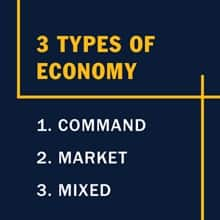Capitalism is part of the problem, but it is not the entire problem. It does forment greed, by using the natural greed of many humans to get them to drive the economy. Still, Capitalism also drives innovation and opens possibilties for people who can come up with no means of creating goods and services. Just like in any economic system, their will be boons and banes attached to it.
The only true means of moving beyond these problems is moving into a post-scarcity economic system. We are far from that though, so we live with what we have and have to compete in the market we operate in. As long as resources, labor, and position slots are limited, there will always be these sort of problems. Can't say communism or socialism are solutions, because Western socalists societies are subsidized by the US when it comes to their national defense, whiel non-western socialist and communist socieities must accept capitalism into their economy (China) or fail economically like the USSR and its satilite states did.
So far, when it comes to which economic system has been the most effective, Capitalism has been it.
"Which Economic System is Best and Why? Yates said that most economists favor a
market-based economy(capitalism) where the price system determines the outcomes of all market transactions. “In a market-based system, every player enters voluntarily in the transactions if they agree on the price,” she said."
What Are the 3 Basic Types of Economies?
There are three main types of economic systems known as economies: a command economy, a market economy and a mixed economy. An understanding of the differences in types of economies can help you decide how to deep dive into a potential career working in the field of economics:
- Command Economy – A command economy is an economy in which the government controls all economic activity and transactions. A country with a communist government is an example of a command economy.
- Market Economy – A market economy is free of all government control. “The economic outcomes are determined by the market forces and the so called ‘invisible hand,’ to use a term coined by philosopher Adam Smith,” Yates said. The invisible hand is a metaphor commonly-used among economists to describe how market forces work together.
- Mixed Economy – This is a hybrid between the command and market economic systems. A mixed economy can be more command or more mixed depending on the government in question. “Most economies in the world are mixed economies, including the United States,” Yates said.










